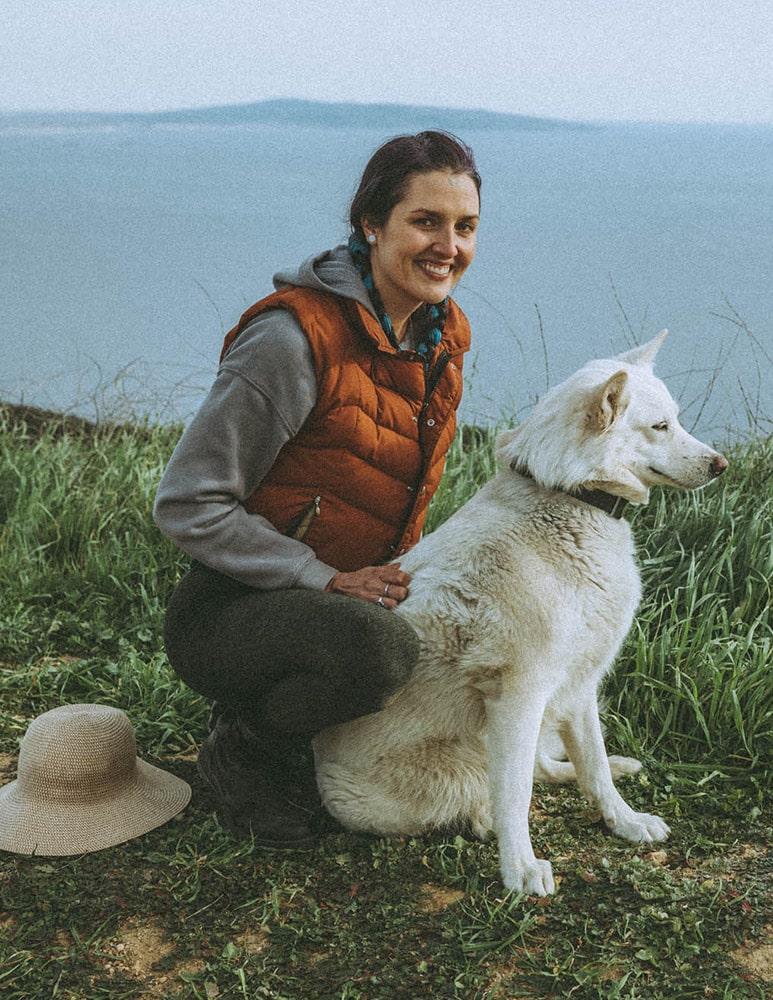
152: Michael Roderick – How To Become Referable
“Patterns are often the precursor for frameworks.”
– Michael Roderick
Welcome back to ONKEN RADIO (previously NION Radio)!
Before we get started, I want to ask you some important questions: What characteristics does a person need to have in order to become referable? Where do you find people who can help you network in order to take the next steps towards a referral? Once you’ve created a constant stream of referrals, you can imagine how much business and experience you’ll gain as a Creative Alchemist as a result!
Today, I’m very excited to share with you today’s guest, Mr. Michael Roderick, who knows all about the importance of referrals and how to score them. Today, we’re talking about how he made some big career changes in his life and how artists can secure funding with investors in their industry. Let’s get started.
Who Is Michael Roderick?
Michael Roderick began his career as a high school English teacher, and in only two years time, began producing Off Broadway and then on Broadway. This combination of experience in the arts and entrepreneurship led to Michael starting an arts incubator program to teach more artists about building and growing their own businesses (PLAE). Eventually, Micahel decided to develop a workshop on networking which grew into a full-time consulting practice and that became Small Pond Enterprises.
Now a successful entrepreneur in the arts industry, Michael Roderick is a super-connector and a relationship builder who has created an amazing program for artists needing help with evaluating and designing their professional relationships as well as building and growing their own businesses. In his networking programs, he asks participants to simulate meetings, job interviews, and cocktail parties in a free-flowing, improv style.
“I started to realize that most people focus on the idea of differentiation and how important it is to be different from everybody else. But they forget about the fact that very, very often, if somebody can’t remember your ideas, if they can’t share it with their friends, then it doesn’t matter how good your stuff is. It doesn’t matter what you’re doing. If people can’t actually talk about it.”
– Michael Roderick
Through his networking workshops, Michael began to have an understanding of how people interact with each other and noticed behavioral patterns, which he later turned into frameworks that he shared with participants. The people who received these frameworks later on applied them in their own networking process and began to receive higher-level opportunities in advancing their careers. Isn’t that awesome? With just the right amount of networking training, you can turn your career around without having to rely on others to make the connection for you!
And that’s just the start of his interesting career. But before we begin talking about his techniques and tips, let’s discuss how Michael broke into Broadway by the simple art of networking.
Breaking into the Broadway Scene
Before pursuing networking opportunities in Broadway, Michael was first curious about how the industry worked. He wanted to know all the details behind the scenes, including the way every Broadway show was funded. And naturally, he became curious about the roles of Broadway producers and how things work around them.
”One of the things that I learned about Broadway was that in essence, it was an aspect of just basically raising money. So if you want to be a Broadway producer, you raise money to make sure that shows happen.”
– Michael Roderick
To get started on his mission, Michael started conversations with Broadway Producers he knew and respected. He offered to help them raise funds for projects without asking for credit first. It took awhile for him to gain credibility from these producers, but through persistence and even more research, Michael started asking the right questions and made his way into the industry.
But while the subject of connecting with a Broadway producer is tricky enough, finding the people who can support you in this connection is an even tougher task to accomplish…
How Do I Find Willing Investors?
It wasn’t enough just to send a few emails and make a couple of phone calls. In order for Michael to truly make a leap toward his Broadway career, he had to find investors who were willing to fund him with the money he needed to succeed.
“So the top question that you get as a Broadway producer, any panel that you sit on, is, ‘How do I find investors?’ … And that’s the same question that you get. If you’re sitting on a panel talking about startups, that’s the same question that you get as an entrepreneur, right? How do I find investors? How do I find people with money? And the answer that I would always give those people who reached out to me — it was always the same — [that] you stop calling them investors. You have to look at these people as individuals, you have to really start to think about who is this person and what do they actually care about?”
– Michael Roderick
Michael knew that if he wanted to be taken seriously, he needed to work out all the fine details. He started doing research on the financial qualifications of people that he could reach out to as well as looking at tried and tested concepts that can help him understand how to better connect with people. He got in touch with an old friend from Rhode Island who later introduced him to someone who had experience in investing in a Broadway show before. He ended up going on a lunch meeting with this person who told him he’ll think about it. During this conversation, Michael treated this investor as a person — not just someone who could potentially give him money. And later on, he got a call from a General Manager saying he’s willing to invest in the show.
Maybe you’re trying to get an investment now as well — either for your personal projects or a business you want to launch. How do you take that first step into making an important connection? You may be tempted to reach out to friends, however; Michael said that it’s much better to reach out to strangers.
“Our relationship with [friends] is the most important thing. So, even if they have a direct connection to somebody who could completely change our lives, there is a part of them that worries that if they make that introduction, that it could end up going poorly. …Whereas the people who are in that sort of weak ties category, they don’t really know us, and they don’t have a lot invested in the relationship. So very often they’re willing to make much, much bigger introductions and connect us to much, much bigger opportunities.”
– Michael Roderick
It’s funny how complete strangers can often offer us better connections than those closest to us, isn’t it? But it all makes complete sense. If the connection opportunity doesn’t work, a friend is likely to feel bad or even afraid you’ll be frustrated with them. However, a stranger is more likely to make those high-profile connections because they’re not invested in your emotions.
So, now that we know to reach out to strangers when it comes to investing, what are some other mistakes we can avoid?
“Yeah. So the biggest mistake that I see people make specifically when it comes to somebody, investing in your project is trying to convince them that the project is going to make money. Right? Because if you try to convince somebody that something’s going to make money instantly, they distrust whether or not it will. They have to come to that discovery on their own. They have to see the value of their own [investment].”
– Michael Roderick
People are naturally curious, so whether you make promises with them or not, there will always be doubt involved in the process. Because of that, Michael has introduced a concept that helps people understand where people’s demands are coming from and what their expectations will likely turn out to be…
The TCM Index
When you sit down with an investor, it’s often difficult to understand what will convince them to invest and what will deter them from offering their services. I mean, after all, we’re not mind readers, and one wrong sentence can destroy your chances for an investment.
“The other piece that I find a lot of us forget about is that people have different things that matter to them other than money and whatever our deficit is, whatever our challenge is, that is not necessarily the other person’s challenge, right? So, … if you are really focused on getting something and you really want somebody to buy a photo book of yours, …what will happen is you’ll spend all this time talking about the photo book, … [but] you’re blind to the fact that this person is not actually interested in the photo book. They’re interested in … something that the photo book will do for them. … You never know [what they want], unless you take the time to really kind of open up and understand.”
– Michael Roderick
To help fix this problem of confusion, Michael came up with the TCM Index. The TCM Index stands for Time, Connections, and Money. In his theory, Michael explains that people will commonly have deficits in those areas, so your job is to understand how you can resolve those deficits for them. While it can be confusing at first to understand how to resolve those issues,, the answer is found in the index itself.
“So if you have a deficit in money, where you are spending your time and who you’re having conversations with can transform that deficit much faster than practically anything else that you’re going to do, right? … If you have a deficit in time, [you want] the people …who can do things much, much faster for you … how you invest that money to give yourself back the time is how you get more time.”
– Michael Roderick
Using this theory, Michael was capable of turning ten connections into 15 or 20 additional introductions each week. Through some simple questions, he was able to understand what the other person needed and how he could fill that deficit for him.
But ironically, while the flow of connections came rushing in, he found that he himself had no time to make money for himself. He soon realized that he wasn’t doing anything for his own message and that he needed to sell his services in order to advance his career. . He ended up developing network workshops, which later on lead to an opportunity to start his own consulting firm — Small Pond Enterprises.
How to Make Connections as an Artist
As Creative Alchemists, we’re always looking for connections — whether it’s artists we can work with, people who can market our products, or experts to learn from. However, people (especially those in the top of their field) will always be picky with the people they decide to connect with. However, instead of giving up on these connections, there are ways to get your foot in the door if you’re smart enough.
“If you know that somebody is really, really busy, and you can tell sort of from their scenario that they probably wouldn’t meet with you, and it’s a time scenario, then what you can do is you can think about what could you do that would give them the opportunity to leverage their time as opposed to trade it?”
– Michael Roderick
Don’t be afraid to reach out to people, but always be cautious about timing. The more thought you put into the outreach email or whichever strategy you prefer to do, the more they’re likely to engage with you. You don’t want to be the annoying person who constantly fills their inbox with connection requests. You want to be the person they remember to respond and reach out to when the time comes! Do your research, understand who you’re dealing with, and come up with the best strategy possible to increase your chances of a connection.
Another way to make connections is to simply make yourself or your brand memorable!
According to Michael, the way to imprint your brand and personality into another’s person’s mind is through three things: Accessibility, Influence, and Memory.
“Accessibility is something that a lot of us fall down on because we make the decision very, very early on as to what the value is that we have to offer.”
– Michael Roderick
The key to making accessibility work is by being patient — rely on time to convince them that having a connection with you is worth it! You can’t expect people to instantly accept what you’re offering. Let them take the time to think about your offer and don’t rush them.
“Influence is the next thing that you want to think about, and influence ties to what you are building into your material to make it so that people want to engage with you and want to do work with you. So there are tons of different things that influence us. We are influenced every day. And if you ever want to look at how you’re influenced, just take the time to go through your week and write down all the things that you buy without thinking.”
– Michael Roderick
Spreading influence isn’t as easy as copying someone else’s marketing efforts. Instead, gather more influence by becoming part of a diversified network and offering more than just one thing. Because if you only have one tool in your toolbox, then you’ll only ever be contacted by people who are interested in that one service that you provide.
“And the interesting thing about memory is that we have anchors for ourselves in terms of how we remember things. So the thing is [that] every single person has those anchors. So when we build anchors into the material and we trigger memories and other people, they start to associate us with those memories [and] they start to share those memories. They start to talk about us with those memories.”
– Michael Roderick
You have the biggest impact on someone when you’re stored in their memory bank. To do this, you have to be authentic with your words, help them solve a problem, alleviate pain, decrease friction, and share your own concepts that they will remember you for. However, you don’t want to talk too much, or else there will be an information overload and anything you said will simply become too much to even remember. Keep it short, simple, and straight to the point, and people will begin to associate you with the problems they need fixing.
Become a Creative Alchemist with Michael Roderick
I learned so many brilliant concepts and networking strategies from my interview with Michael, and I know you did too. . His ideas on how to approach people, how to find people who can potentially make an investment, and how to eventually build a big network will definitely help you further your Creative Alchemy. Alchemy is defined as the process of taking something ordinary and turning it into something extraordinary, sometimes in a way that cannot be explained.
With that being said, I define Creative Alchemy as using the process of creativity to create a lens through which to perform alchemy. These principles not only apply to artists and creatives in their own creative processes, but to anyone who wants to create an extraordinary life in color for themselves. I’ve found that 80% of creating is alchemizing the thoughts, emotions, and other inner blocks that keep you from putting the pen to the paper. Navigating to the act of creation takes alchemical processes, and part of these processes include networking, connecting with people, and finding investors for your work! I hope this episode gave you the tools you need to start making that process happen for you.
If you enjoyed this interview, tag Michael on Twitter, @MichaelRoderick, and me, @nick_onken, on Instagram with a screenshot of the episode and your greatest takeaways. I’d also really appreciate it if you could leave a five-star review on Apple Podcasts, share the episode link on social media, and join the podcast community.
Remember — in order to be successful, you can’t work alone. Go out there and don’t be afraid to network!
Until next time —
Nick Onken
“You always need to focus on going where you’re awesome, not where you’re ordinary.”
– Michael Roderick
You can Subscribe and Listen to the Podcast on Apple Podcasts. And please leave me a Rating and Review!
Some things we learn in this podcast:
- How Michael learned to “skip the line” [4:09]
- Why you should stop calling them investors [9:26]
- How to pitch your project by utilizing the TCM index [15:40]
- The idea of an income ceiling vs. an understanding ceiling and how you can use it [25:47]
- What makes a brand or a person memorable [40:23]
- The different types of influence and how to build them into your brand [47:57]
- The power of the blue ocean strategy [51:54]
- Why Michael warns against working too hard at the wrong thing and developing “Boxer Syndrome” [54:57]
- How to use the concept of memory to focus on what’s important in our interactions with others [56:08]
- How the concept of the starving artist is stopping creative people from realizing their full potential [1:00:39]
Links Mentioned:
- “The Power of Habit: Why We Do What We Do in Life and Business” by Charles Duhigg
- Influence: The Psychology of Persuasion by Robert B. Cialdini
Connect with Michael Roderick on Small Pond Enterprises | Access to Anyone Podcast | Facebook | Twitter








